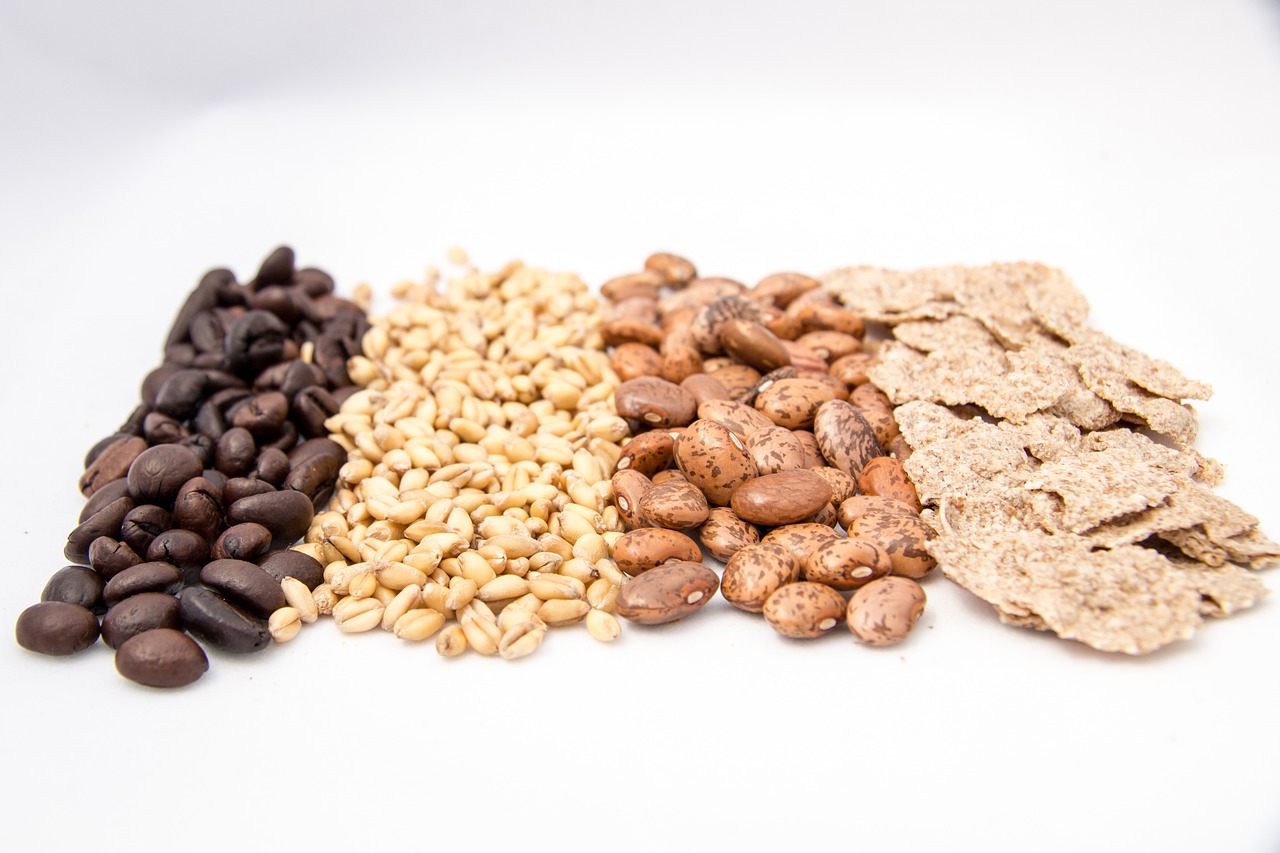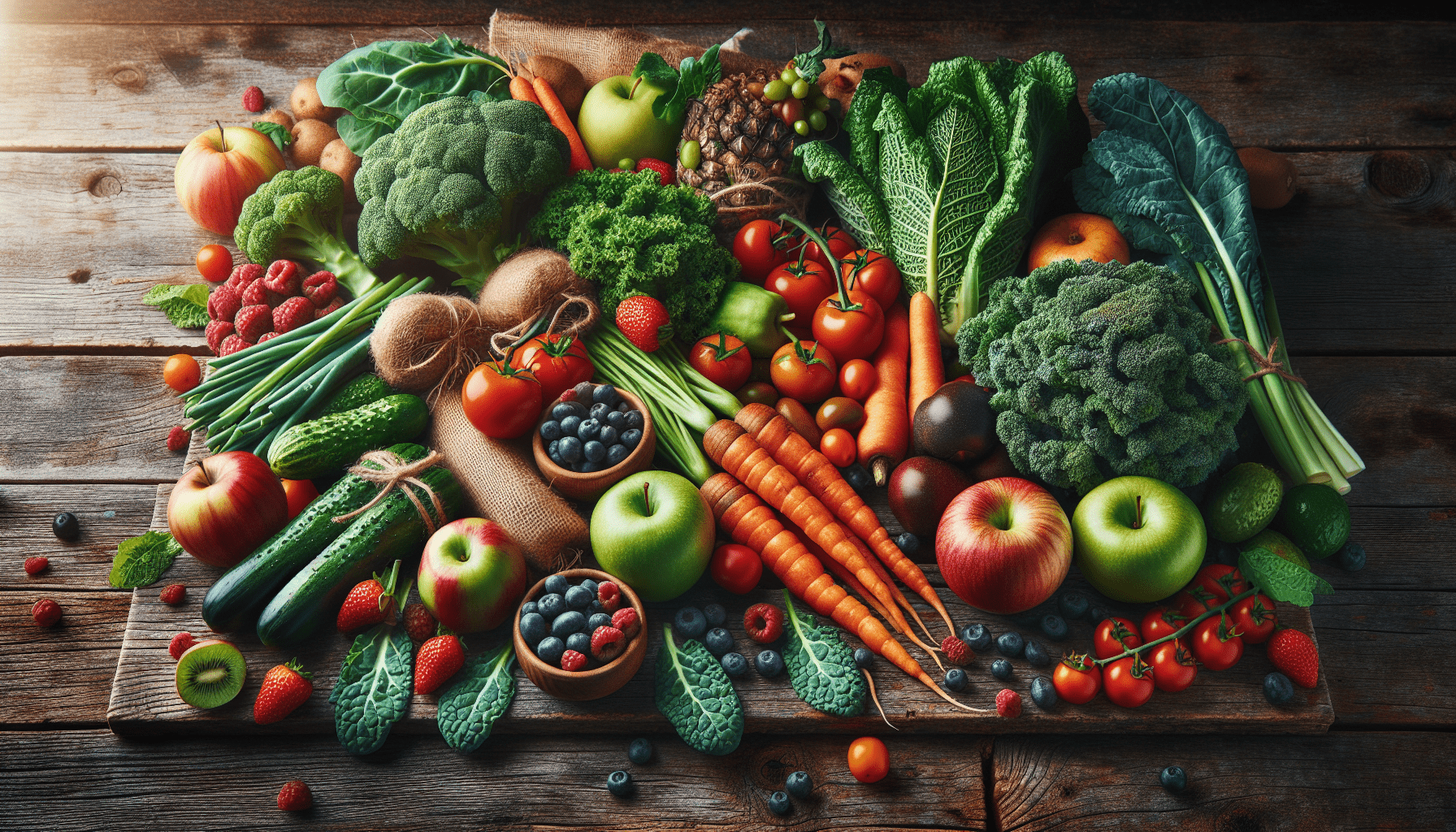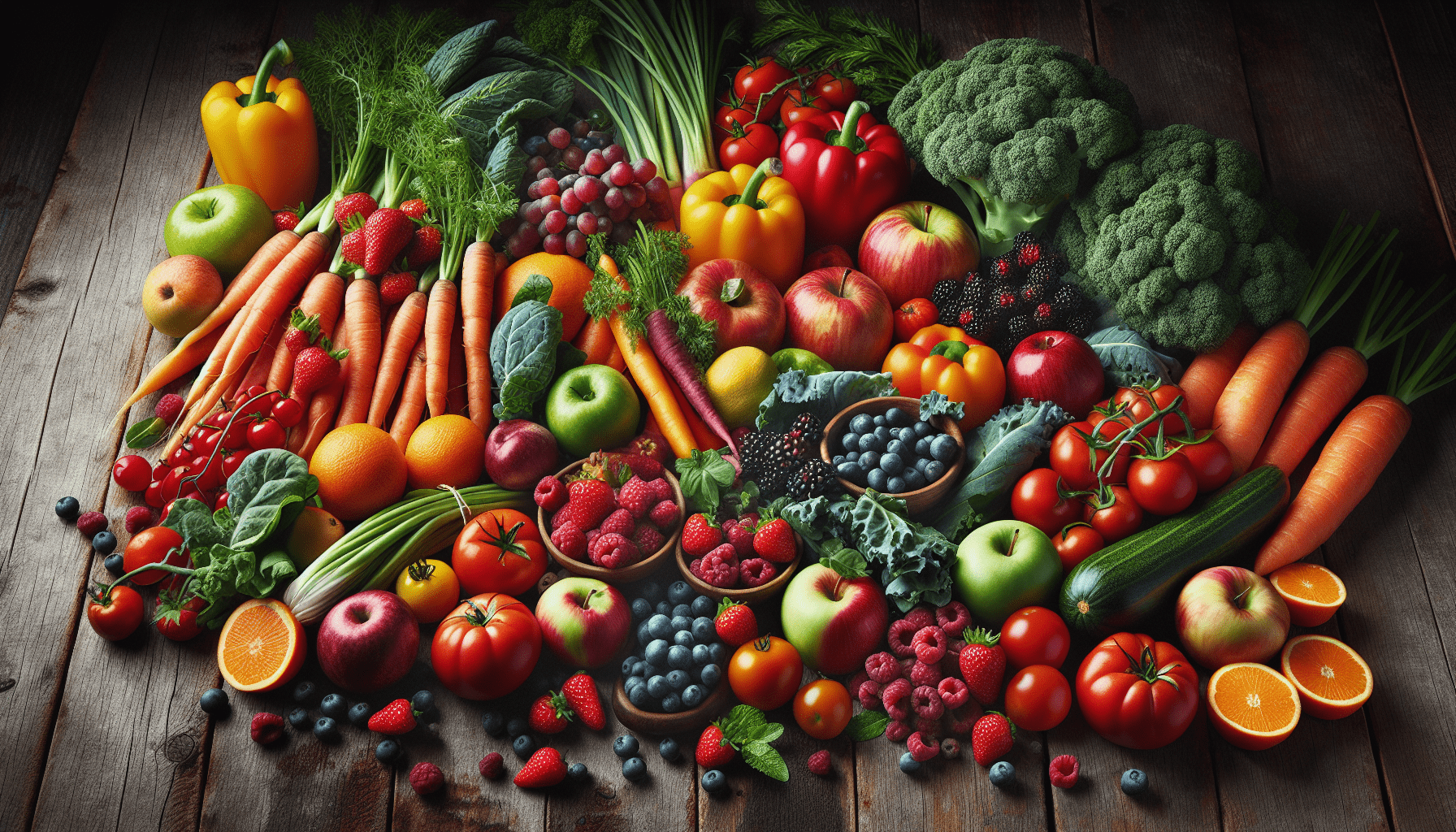In our exploration of “The Nutritional Benefits of Organic Foods,” we delve into the reasons why choosing organic might be a healthier option for us all. Organic foods, grown without synthetic pesticides and fertilizers, offer a variety of nutritional advantages that can benefit our overall well-being. By selecting organic, we embrace a lifestyle that prioritizes the quality and purity of our food, potentially leading to higher nutrient levels and fewer harmful chemicals in our diets. Let’s walk through the key nutritional benefits that make organic foods a smart choice for our health-conscious journey. Have you ever stood in the produce aisle and wondered, “Are organic foods more nutritious?” With the increasing popularity of organic produce, many of us find ourselves questioning whether the benefits are worth the often higher price tags. Let’s dive into the nutritional benefits of organic foods and see if they truly stand apart from their conventionally grown counterparts.

What Are Organic Foods?
Before we can discuss the nutritional benefits, we need to understand what qualifies as organic food. Organic foods are grown without synthetic pesticides, fertilizers, genetically modified organisms (GMOs), or ionizing radiation. Similarly, organic livestock must be reared without the routine use of antibiotics or growth hormones. Instead, farmers rely on natural processes and substances to manage farming and livestock rearing.
Organic Farming Practices
Organic farming practices are designed to encourage soil and water conservation and reduce pollution. Techniques include:
- Crop rotation to maintain soil health.
- Use of compost, manure, and green manure to enrich soil.
- Biological pest control instead of chemical pesticides.
- Grazing management for livestock to enable natural behaviors and prevent overgrazing.
These methods aim to create sustainable and environmentally friendly farming systems, but how do they impact the nutritional value of the food we eat?
Nutritional Differences Between Organic and Conventional Foods
To determine if organic foods are more nutritious, we need to compare their nutrient content to that of conventional foods. While the research on this topic is extensive and sometimes conflicting, there are several areas where organic foods tend to excel.
Higher Levels of Antioxidants
One of the most commonly cited nutritional benefits of organic foods is their higher antioxidant content. Antioxidants are compounds that help protect our cells from damage caused by free radicals. Several studies have shown that organic fruits and vegetables often have higher levels of antioxidants compared to conventional ones.
A landmark study published in the British Journal of Nutrition analyzed data from 343 peer-reviewed publications and found that, on average, organic crops contain higher concentrations of antioxidants such as polyphenolics. Here’s a brief comparison:
| Antioxidant | Conventional (mg/kg) | Organic (mg/kg) |
|---|---|---|
| Polyphenolics | 450 | 600 |
| Flavonoids | 300 | 450 |
| Carotenoids | 150 | 200 |
The increased antioxidant levels in organic produce are thought to be due to the lack of synthetic pesticides. Plants produce antioxidants as a defense mechanism against pests and diseases, so when they are grown without chemical pesticides, they may naturally produce more of these beneficial compounds.
Lower Levels of Pesticide Residues
While pesticide residues don’t directly contribute to the nutritional content of food, they are worth mentioning when discussing organic vs. conventional foods. Organic foods typically have lower levels of pesticide residues, which is a significant consideration for many of us looking to reduce our exposure to synthetic chemicals in our diets.
Balanced Omega-3 Fatty Acids in Organic Meat and Dairy
Another area where organic foods may have a nutritional edge is in their fatty acid profiles. Organic meat and dairy products tend to have higher levels of omega-3 fatty acids. Omega-3s are essential fats that are beneficial for heart health, brain function, and inflammation reduction.
A study in the Journal of Dairy Science found that organic milk had up to 50% more omega-3 fatty acids compared to conventional milk. This difference is primarily attributed to the organic livestock’s diet, which often includes more grass and fewer grain-based feeds.
Reduced Heavy Metal Contaminants
Heavy metals like cadmium can be harmful in large amounts. Some research has found that organic produce contains lower levels of cadmium compared to conventional produce. The reduced use of synthetic fertilizers in organic farming is believed to contribute to this difference.
Understanding Nutrient Density
Nutrient density refers to the amount of nutrients a food provides relative to its calorie content. Foods that are nutrient-dense offer more vitamins, minerals, and beneficial compounds per calorie, making them excellent choices for maintaining good health.
Nutrient Density in Organic Produce
Organic produce is often more nutrient-dense because of factors like soil health and the absence of synthetic chemicals. Healthy soil means healthier plants, which can lead to fruits and vegetables that are richer in nutrients.
According to a study from Washington State University, organic berries and corn had higher levels of vitamin C and a greater concentration of antioxidant compounds when compared to their conventionally grown counterparts.
Nutrient Density in Organic Meat and Dairy
Similarly, organic meat and dairy products are often more nutrient-dense:
| Nutrient | Conventional (mg/100g) | Organic (mg/100g) |
|---|---|---|
| Omega-3 Fatty Acids | 0.2 | 0.3 |
| Vitamin E | 1.0 | 1.2 |
| Conjugated Linoleic Acid | 0.5 | 0.7 |
Organic animals usually have better living conditions and diets, which helps improve the nutritional quality of the meat and dairy they produce.
Health Implications of Organic Foods
While the nutritional differences between organic and conventional foods can be significant, the overall health implications are what’s most important. How do these differences translate into real-world health benefits?
Reduced Risk of Chronic Diseases
Some evidence suggests that consuming organic foods may help reduce the risk of chronic diseases. The increased antioxidant levels in organic foods can help mitigate oxidative stress, which is linked to conditions like heart disease, cancer, and neurodegenerative disorders.
Better Immune Function
The lower levels of pesticides and higher nutrient density in organic foods might also contribute to better overall immune function. A robust immune system can help us ward off infections and overall health problems more effectively.
Fewer Antibiotic-Resistant Bacteria
Organic farming practices that avoid the routine use of antibiotics can help reduce the prevalence of antibiotic-resistant bacteria. This is critical as antibiotic resistance is a growing public health concern worldwide.

Organic Foods and Environmental Sustainability
Eating organic is not just about personal health; it’s also about the health of our planet. Organic farming methods are designed to be more sustainable and environmentally friendly than conventional agriculture.
Soil Health
Organic farmers use methods that promote healthy soil. Techniques like crop rotation, cover cropping, and the use of natural fertilizers enrich the soil, keeping it fertile and capable of supporting plant life.
Biodiversity
Organic farms often support more biodiversity than conventional farms. They use fewer chemical pesticides and herbicides, which allows a greater variety of plants, insects, and animals to thrive.
Water Conservation
Organic farming practices prioritize water conservation. Techniques like composting and mulching improve soil structure and water retention, reducing the need for irrigation.
Reduced Carbon Footprint
Organic farming often has a smaller carbon footprint compared to conventional farming. The absence of synthetic fertilizers and pesticides reduces the farming sector’s reliance on fossil fuels and decreases greenhouse gas emissions.
Economic and Social Impacts
Besides the nutritional and environmental benefits, choosing organic foods can also have positive economic and social impacts.
Supporting Local Farmers
By purchasing organic produce, we support local farmers who are often small-scale and family-owned. This helps sustain local economies and promotes fair wages and better working conditions for farmworkers.
Promoting Healthier Communities
Organic farming practices contribute to healthier communities by reducing pollution and minimizing the exposure of farmworkers and nearby residents to harmful chemicals.
Encouraging Transparency in the Food Industry
The organic label promotes transparency, giving us more information about how our food is produced. This encourages other food producers to adopt more sustainable and ethical practices.

The Cost Factor: Is Organic Worth It?
One of the main barriers to choosing organic food is the cost. Organic foods tend to be more expensive than conventional foods. But is the higher price justified?
Understanding the Costs of Organic Farming
Organic farming requires more labor and management, which can increase production costs. The absence of synthetic chemicals means that organic farmers need to rely on more labor-intensive practices like mechanical weeding and composting. Additionally, organic seeds and natural fertilizers can be more expensive.
Weighing the Long-Term Benefits
While organic foods can be pricier upfront, the long-term health benefits and environmental sustainability may offset the initial cost. Fewer pesticides and antibiotics mean potentially lower healthcare costs due to a reduced risk of chronic diseases and antibiotic resistance.
Shopping Smart for Organic Foods
To make organic shopping more affordable, consider the following tips:
- Buy Seasonal Produce: Organic fruits and vegetables that are in season are usually cheaper.
- Join a CSA: Community Supported Agriculture programs can provide fresh, organic produce at lower costs.
- Shop at Farmers Markets: These can offer competitive prices for organic goods while directly supporting local farmers.
- Prioritize Purchases: If budget constraints limit your ability to buy entirely organic, prioritize items known to have the highest pesticide residues when grown conventionally, like strawberries, spinach, and apples (often referred to as the Dirty Dozen).
Conclusion: Making Informed Choices
In the end, whether or not organic foods are more nutritious can depend on a variety of factors including the specific type of food and the farming practices used. However, the evidence does lean towards organic foods offering several nutritional advantages such as higher levels of antioxidants, better omega-3 fatty acid profiles, and lower levels of harmful contaminants like pesticides and heavy metals.
Beyond nutrition, choosing organic supports environmental sustainability and promotes ethical farming practices. While the cost can be a deterrent, many of us can find ways to make organic foods a more regular part of our diets through smart shopping and prioritizing certain foods.
By making informed choices, we can contribute to our health and the well-being of our planet. So next time you find yourself pondering the organic options in the grocery store, you’ll have a clearer understanding of the numerous benefits these foods can bring.
Is switching to organic worth it for you? That decision rests on your personal values, health goals, and budget, but it’s undeniable that organic foods offer a compelling array of benefits that extend well beyond the nutrients on your plate.




